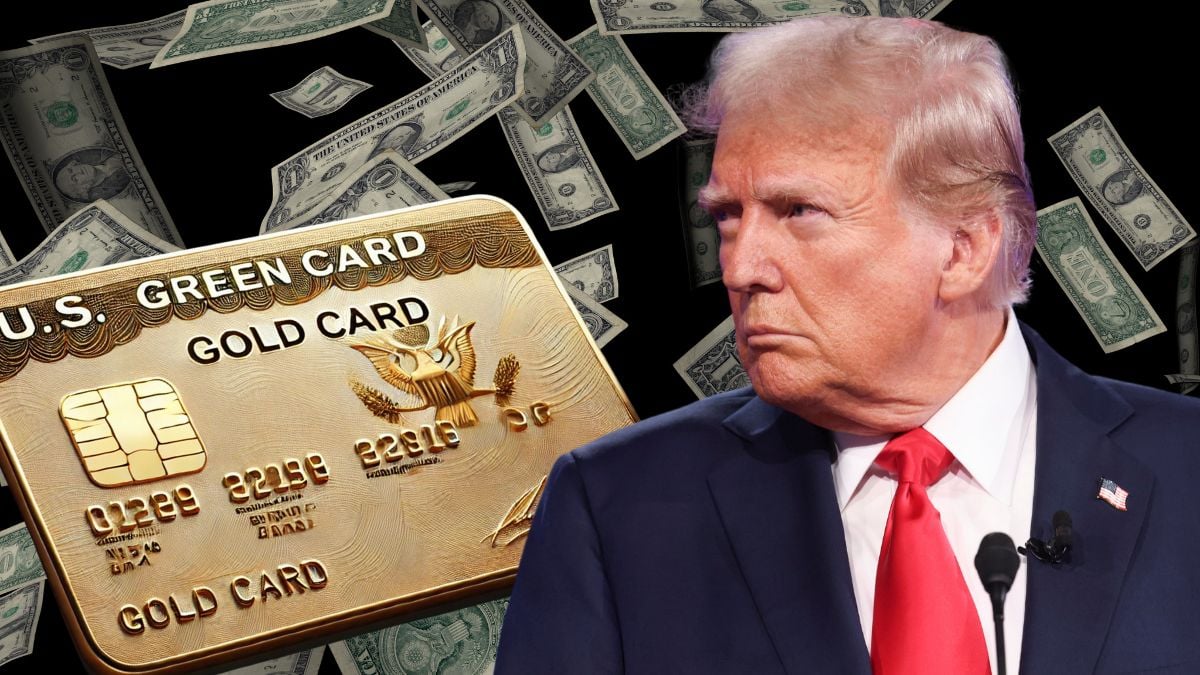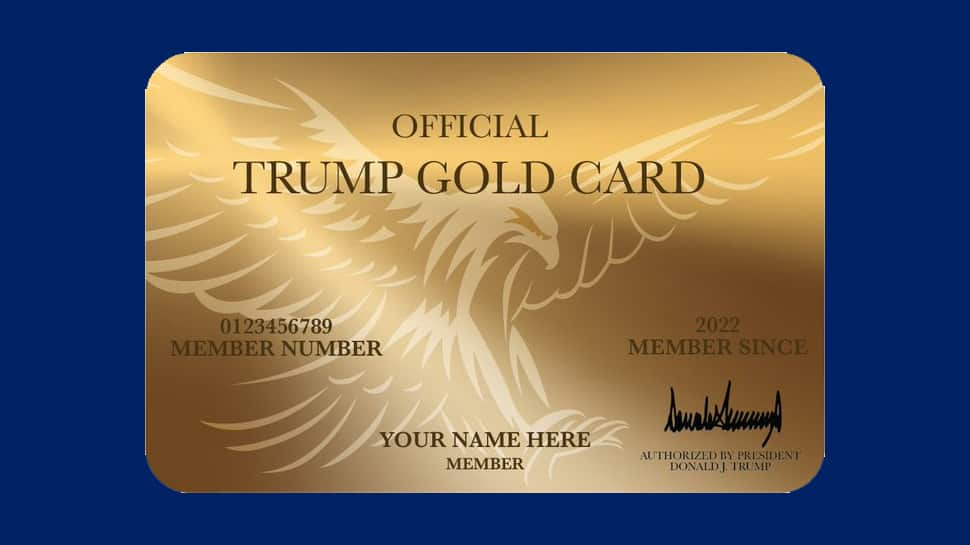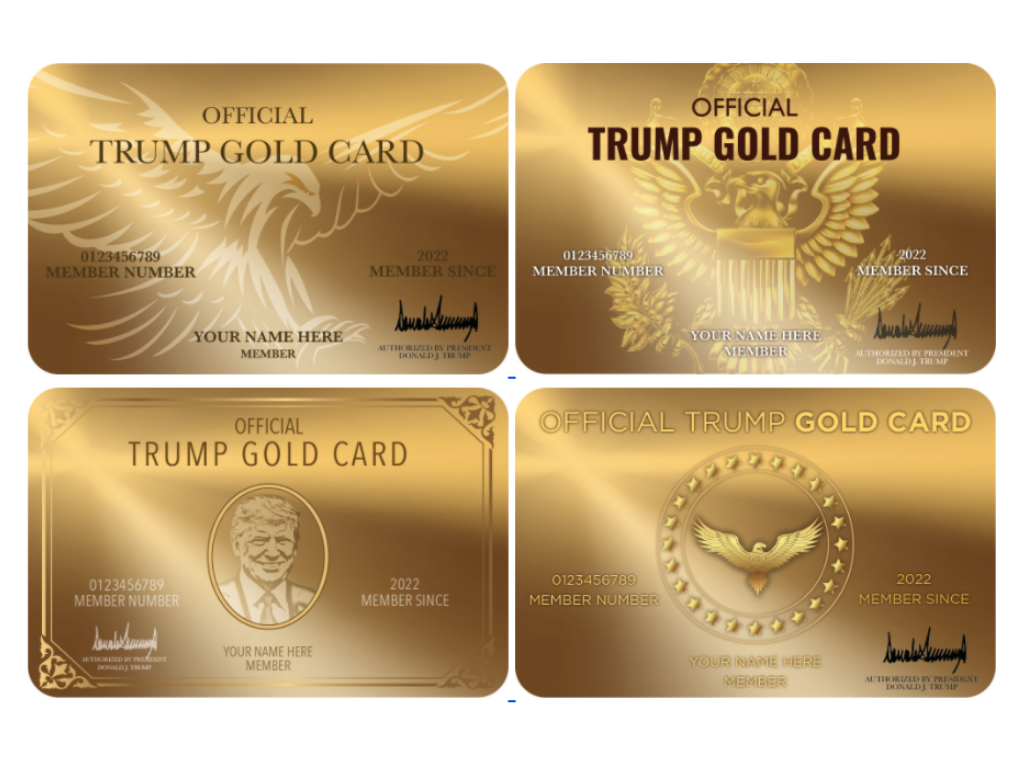In an era defined by ever-tightening borders and increasingly complex immigration policies, could there be a fast track to American citizenship for the world's elite? Former President Donald Trump has proposed precisely that: a "Trump Gold Card Visa," a bold initiative that could redefine the very landscape of U.S. immigration.
Unveiled in February 2025, the Trump Gold Card Visa envisions a streamlined pathway to U.S. permanent residency, and ultimately citizenship, for wealthy foreign nationals willing to invest a substantial sum. The proposed fee? A cool $5 million. This initiative, announced during a gathering with reporters while signing executive orders, immediately sparked debate, raising questions about fairness, economic impact, and the very definition of American citizenship. The concept of offering a "premium" version of the Green Card, as some have termed it, has ignited passionate discussions across the political spectrum.
| Category | Details |
|---|---|
| Name | Donald John Trump |
| Date of Birth | June 14, 1946 |
| Place of Birth | Queens, New York City, U.S. |
| Education | B.S. in Economics, Wharton School of the University of Pennsylvania |
| Career | Real estate developer, businessman, television personality, 45th President of the United States |
| Political Party | Republican |
| Key Initiatives | Tax Cuts and Jobs Act, appointment of conservative judges, border security measures, trade renegotiations. Proposed "Trump Gold Card Visa" in February 2025 |
| Net Worth (Estimated) | Varies, but consistently in the billions of USD. |
| Family | Married to Melania Trump. Has five children: Donald Jr., Ivanka, Eric, Tiffany, and Barron. |
| Website | Official Website |
Trump, speaking on Tuesday, framed the Gold Card as a win-win scenario: wealthy individuals gain access to the American dream, and the U.S. benefits from a massive influx of capital. He suggested that the program could generate significant revenue, potentially helping to alleviate the national debt. The former president even quipped that he was the "first buyer" of the card, though he couldn't recall who the second might be. He optimistically predicted that the cards would be available in "less than two weeks" and envisioned selling millions of them.
- Vegamovies Your Guide To Free Movies Web Series 2024 Streaming Now
- Nicholas Ralph Bio Career Relationship Status Everything You Need
The Gold Card, according to Trump's vision, would bear the words "The Trump Card," a playful nod to his popular catchphrase. It's designed to be a premium alternative to the existing Green Card, offering a more direct and expedited route to citizenship. However, unlike the traditional EB-5 investor visa program, which requires a $1 million investment in a company employing at least 10 people, the Gold Card mandates a $5 million payment directly to the U.S. government, ostensibly for deficit reduction.
The implications of such a program are vast and far-reaching. Critics argue that it creates a two-tiered immigration system, where wealth trumps merit and opportunity. They contend that it could further exacerbate income inequality and undermine the principles of fairness and equal access that are central to the American ideal. Concerns have also been raised about potential national security risks, with some questioning the vetting processes for such high-value applicants.
Proponents, on the other hand, emphasize the potential economic benefits. They argue that the influx of billions of dollars could stimulate growth, create jobs, and help to address the nation's financial challenges. They also point out that other countries, such as Canada and Australia, have similar investor visa programs that have proven to be successful.
- Aditi Mistrys Viral Story Beyond The Headlines Controversies
- Mkvmoviespoint Risks Safe Alternatives For Free Movie Streaming
The Trump Gold Card proposal is not without precedent. The existing EB-5 visa program already allows foreign investors to obtain green cards by investing in U.S. businesses. However, the EB-5 program has been plagued by controversy, with allegations of fraud and abuse. The Gold Card, with its higher investment threshold and direct payment to the government, is intended to address some of these concerns and provide greater transparency and accountability.
However, the EB-5 program requires investments that demonstrably create jobs, which offers a direct economic benefit beyond the initial investment. The Trump Gold Card, in its proposed form, directs the funds toward deficit reduction, a broader economic goal that is less directly tied to job creation.
Beyond the economic arguments, the Gold Card raises fundamental questions about the value of citizenship. Is it a right, earned through hard work, dedication, and contribution to society? Or is it a commodity, available to the highest bidder? These are questions that strike at the heart of American identity and values.
The legal challenges surrounding the Gold Card are also significant. Immigration laws are complex and subject to change. It is unclear whether the Trump administration has the authority to create such a program without Congressional approval. Legal experts predict that the Gold Card, if implemented, would face numerous lawsuits challenging its legality and constitutionality.
Furthermore, the political climate surrounding immigration is highly charged. Any proposal that could be perceived as favoring the wealthy or undermining existing immigration laws is likely to face fierce opposition from both sides of the aisle. The Gold Card has already drawn criticism from Democrats, who accuse Trump of selling out American citizenship, and from some Republicans, who worry about the potential impact on national security.
The announcement of the Gold Card came amid a broader crackdown on immigration by the Trump administration. From building a wall on the border with Mexico to tightening visa requirements, Trump has made immigration a central focus of his presidency. The Gold Card, in some ways, represents a counterpoint to these policies, offering a path to citizenship for the wealthy while simultaneously restricting access for others.
The implications for the U.S.'s global standing are also worth considering. Would the Gold Card enhance the country's reputation as a land of opportunity, or would it reinforce the perception that America is only open to those who can afford it? The answer to this question depends on how the program is perceived both domestically and internationally.
The actual design of the Gold Card itself has also been a topic of discussion. The idea of printing "The Trump Card" on it has been met with mixed reactions. Some see it as a clever marketing ploy, while others view it as a blatant attempt to promote the Trump brand at the expense of the country's image.
The success of the Gold Card would also depend on the level of demand from wealthy foreign nationals. Would there be enough individuals willing to invest $5 million for the chance to become American citizens? The answer to this question is uncertain, as it depends on a variety of factors, including the perceived benefits of American citizenship, the political and economic stability of the U.S., and the availability of alternative investment opportunities in other countries.
Moreover, the program would need to be carefully managed to prevent fraud and abuse. Background checks and vetting processes would need to be thorough and rigorous to ensure that only individuals with legitimate intentions are granted access to the program. The potential for money laundering and other illicit activities would need to be carefully addressed.
President Trump's estimate of selling one million cards and generating trillions in revenue may be overly optimistic. The EB-5 program, which has a much lower investment threshold, has never come close to those numbers. The Gold Card would need to be incredibly successful to achieve such lofty goals.
The potential impact on the existing EB-5 program is also a concern. Would the Gold Card siphon off investment from the EB-5 program, potentially harming businesses and job creation? Or would it complement the EB-5 program by attracting a different type of investor?
It is also important to consider the broader context of global migration patterns. As the world becomes increasingly interconnected, the movement of people across borders is likely to continue to increase. The Gold Card represents one approach to managing this migration, but it is not the only one. Other countries are experimenting with different policies and programs, and the U.S. could learn from their experiences.
The former president has floated the idea of a Gold Card visa, triggering a global conversation about the intersection of wealth, citizenship, and national identity. While the details of the program remain to be seen, its potential impact on the U.S. and the world is undeniable. Whether it will become a reality, and whether it will achieve its intended goals, remains to be seen. The "Trump Gold Card Visa" promises to be a defining chapter in the ongoing debate about immigration and the American dream.
The debate continues: is citizenship a right, or a privilege that can be bought? The answer, perhaps, lies in the delicate balance between economic opportunity and the fundamental values that define a nation.
Ultimately, the success or failure of the "Trump Gold Card Visa" will depend on its ability to navigate the complex legal, political, and ethical challenges that lie ahead. It is a bold proposal that has the potential to reshape the landscape of U.S. immigration, but it also carries significant risks. The world will be watching closely to see how this story unfolds.
The timeline for the implementation of the Gold Card remains uncertain. Given the legal and political hurdles, it could be months, or even years, before the program is fully operational. However, the fact that it has been proposed at all is a sign that the debate about immigration is far from over, and that new and innovative solutions are needed to address the challenges of a changing world.
Only time will tell if the "Trump Gold Card Visa" will become a reality, but it has already sparked a crucial conversation about the value of citizenship and the future of immigration in the United States.
- Timothy Olyphant A Comprehensive Look At His Life Career
- Hdhub4u South Your Guide To South Indian Cinema More


